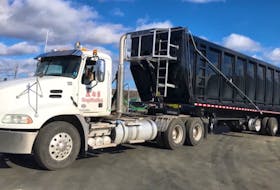When COVID-19 hit Atlantic Canada, consumers flooded the stores to stock up on the groceries and household necessities they felt they needed to stay home. While toilet paper and flour became hot commodities, there was also a huge spike in battery sales.
“Families were buying large quantities of batteries knowing their kids would be home and they’d need them for gaming consoles, powered toys and home electronics,” explains Joe Zenobio, President of Call2Recycle Canada, Inc. “People anticipated they’d be at home for a while, and they stocked up on everything.”
While the surge in purchases was great for the battery industry, Zenobio says the concern is that many of those batteries will be coming to the end of their life soon — and not everyone understands the proper way to dispose of them.
Call2Recycle is the Island’s provincially appointed, not-for-profit household battery collection and recycling program that’s urging Islanders to protect, store and recycle their old batteries safely.
If your junk drawer rattles with loose batteries, spare change, paper clips and random screws — and you usually just drop used batteries in the garbage can — you could be putting your family at risk.
Zenobio says batteries should never, ever be stored with other metal items or thrown into the garbage or your regular recycling bin. Even nearly-dead batteries can still retain a residual charge. They can spark if they brush against metal objects — or other batteries — and this could lead to a fire.
Tossing batteries in the regular waste stream also means they’ll wind up in a landfill and could leak — potentially harming the environment or local wildlife — or come into contact with metal and start a fire there.
SAFELY PROTECT
Used batteries should be put back in their original packaging (which is designed to keep them separated), placed in clear sealable plastic bags (multiple cylindrical alkaline batteries may be wrapped together) or have their ends covered with small pieces of clear packing tape, duct tape or electrical tape.
SAFETY STORE
So what do you do with your used batteries after that? Place them in a non-metal container — like an old yogurt tub or a plastic storage bin. Keep the container in a cool, dry place that’s away from direct sunlight or extreme heat.
SAFETY RECYCLE
Because of their high-energy chemistry, batteries must go through a specialized recycling process. Once you have a small stash of protected, safely stored batteries, bring them to a drop-off location so they can be recycled. Be sure to contact them first to confirm they are accepting used batteries and check their hours of operation, which may be limited due to COVID-19.
If you’re still staying close to home because of the pandemic and don’t feel comfortable venturing to your local recycling centre, Zenobio says that’s not a problem at all — just bring your used batteries with you when you run errands. Many hardware stores are approved drop-off points with flame-retardant boxes for accepting used batteries. To find a drop-off location close to you, visit Call2Recycle.ca/locator and it will display a list of options.
A NEW LIFE FOR OLD BATTERIES
What’s the next step in the life of a used battery? The used batteries are carefully collected and transported to special recycling facilities where they’re sorted according to weight and chemistry before being processed to separate out all of the different metals.
Steel, aluminum and copper from the reclaimed batteries will be poured into ingots, sold on the open market and recycled into new golf clubs, watches, bicycles and even stainless steel appliances.
“Recycling your batteries checks off a lot of boxes,” says Zenobio. “You’re helping preserve the environment, you’re protecting wildlife, you’re reducing potential fire hazards and you’re reclaiming materials so they can be reused for new products.”
To learn more about the importance of protecting, storing and recycling your batteries — or to find a drop-off location close to you — please visit call2recycle.ca/protect-store-recycle.









